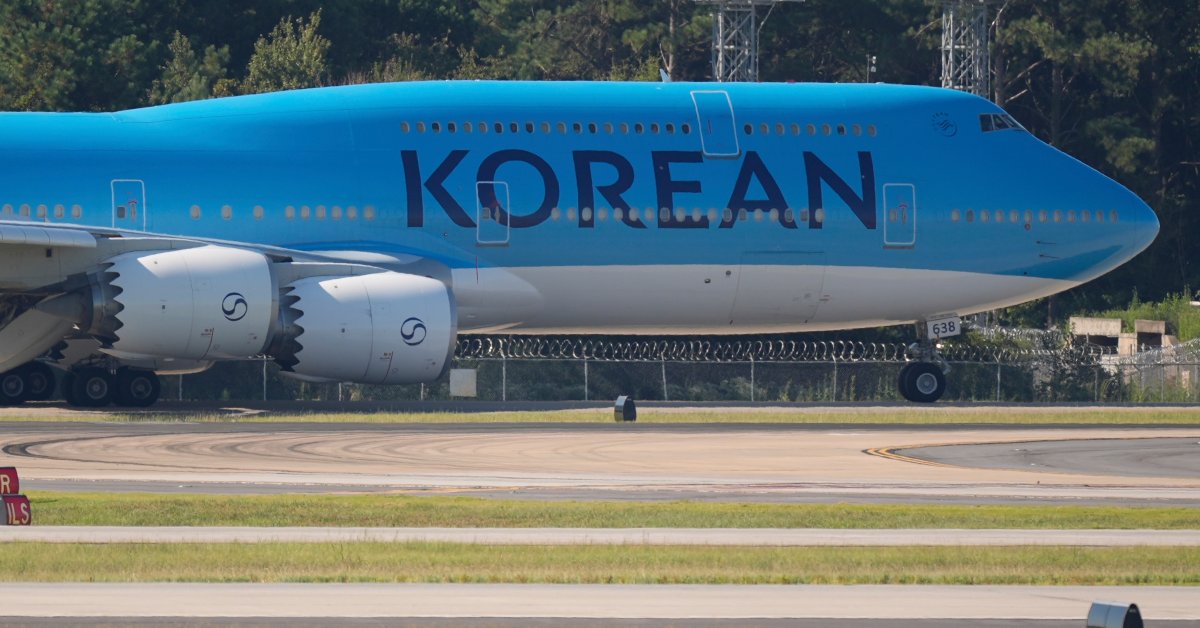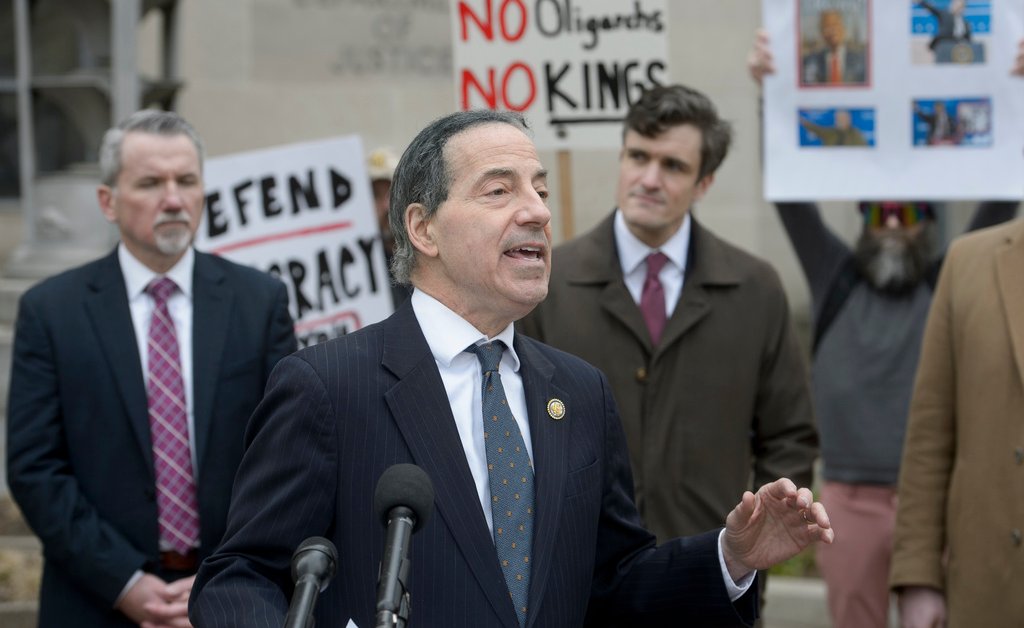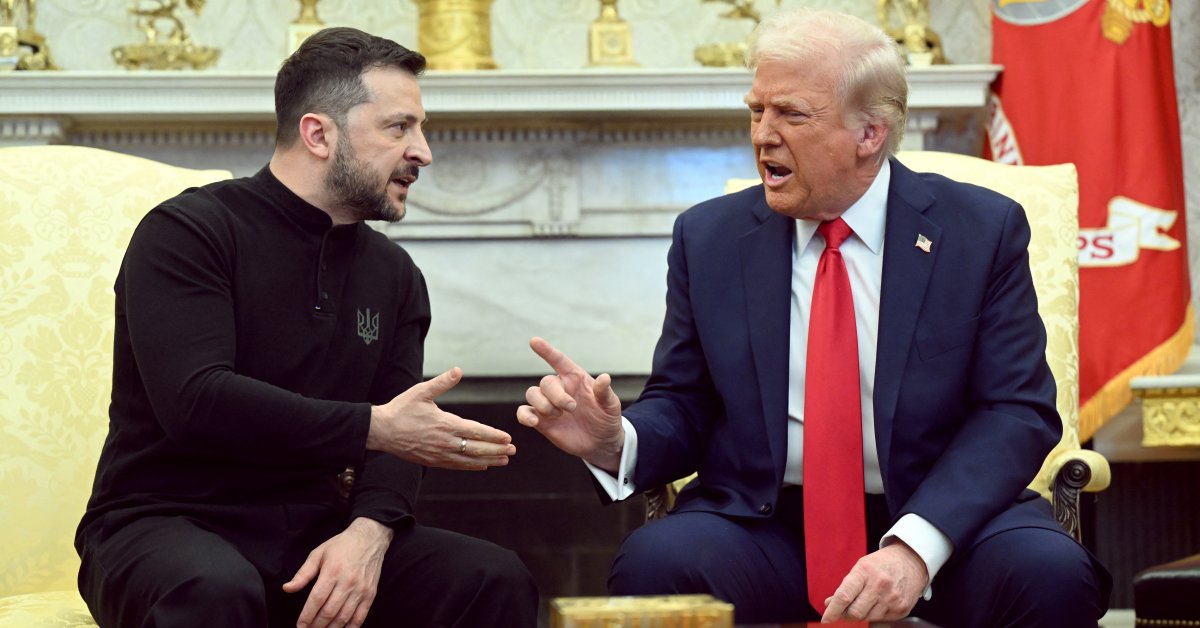More than 300 South Koreans who were detained in a sweeping Immigration and Customs Enforcement (ICE) raid on a Hyundai-LG battery plant in Georgia last week will finally be going home on Thursday after a delay reportedly due to an offer from President Donald Trump for them to continue working in the U.S.
The detainees were initially set to depart the U.S. on Wednesday, but Secretary of State Marco Rubio told South Korean Foreign Minister Cho Hyun during negotiations for their release that Trump wanted to “encourage” the Koreans to remain in the country, a foreign ministry official told South Korean news agency Yonhap.
“That led to a halt in the departure process, in order to first hear Korea’s position on whether the detained nationals, all of whom are skilled workers, want to return home or stay in the U.S. to continue working and help train American personnel,” the official said, adding that the detainees—who had been restrained in handcuffs and ankle chains at their arrest, according to footage released by the U.S. authorities—were “extremely shocked and exhausted” and should return home first but could return to the U.S. at a later date. Three-hundred-thirty detainees—316 Koreans as well as 10 Chinese nationals, three Japanese, and one Indonesian—out of 475 detained on Sept. 4 were released from an ICE facility in Folkston, Ga., and will return to Seoul on Thursday afternoon on a chartered flight from Atlanta with no restraints, according to Cho.
“Each person was allowed to choose, and the U.S. government said essentially, ‘If you want to go, you may go; if you want to stay, you may stay,’” South Korean President Lee Jae-myung said at a news conference in Seoul on Thursday. One South Korean detainee chose to remain in the U.S., Lee said.
Trump’s offer appears to be an about-face from last week’s raid, after which he urged foreign companies “to please respect our Nation’s Immigration Laws” and to “hire and train American Workers.” Georgia state officials had also embraced the crackdown, which was part of a nationwide initiative called “Operation Take Back America.”
But the raid created rifts between the U.S. and South Korea, both diplomatically and economically. South Korean officials had complained that the raid, which came weeks after South Korean firms agreed to invest $350 billion in the U.S. as part of a trade deal, was predicated on the U.S.’s persistent visa problems.
“Trump’s immigration policies and push for bigger foreign investment do not have to be incompatible,” Ryu Yongwook, an assistant professor at the Lee Kuan Yew School of Public Policy in Singapore specializing in East Asian international relations, previously told TIME. “But for them not to be incompatible, the U.S. government must produce and apply a fine-tuned immigration policy that eases the process of foreign direct investment.”
It appears in the aftermath of the raid that the Trump Administration is willing to make concessions to do that.
South Korea says raid may impact investments
Lee said on Thursday that the “bewildering” detentions “could have a significant impact on future investment decisions, particularly when evaluating the feasibility of direct operations in the U.S.” He added that South Korean firms “can’t help but question whether setting up a plant in the U.S. is worth the potential risks” and that unclear visa policies make these companies consider “whether they should go at all.”
Ryu told TIME earlier this week that Trump’s crackdown on both legal and illegal immigration could make the U.S. a difficult environment for foreign businesses. In the meantime, too, Ryu said the raid has delayed the construction of the Georgia plant, which would create thousands of U.S. jobs after completion.
Lee noted that minor visa infractions by Americans in South Korea were not considered a “serious issue.”
“In South Korea, we see Americans coming on tourist visas to teach English at private cram schools—they do it all the time, and we don’t think much of it, it’s just something you accept,” he said, referencing private tutoring in the Asian nation, which the government has tried to crack down on. “But the United States clearly doesn’t see things that way.”
Lee said South Korean firms were long able to bring in short-term skilled technicians—a workforce that “simply doesn’t exist locally in the U.S.”—in order to complete construction and train U.S. workers. “But now, even that basic request is being rejected,” he said.
A new visa category may be created
South Korea reportedly received assurances that its nationals’ future reentries into the U.S. will be free of barriers, according to Yonhap.
Foreign Minister Cho said that he and Rubio have discussed forming a “working group” to improve the visa systems for South Korean businesses, which could include a new visa category.
That category, Cho says, “befits our investments in the long term and ensures there will be no inconveniences for our businesses visiting and working in the U.S.”
But immigration lawyer Charles Kuck, who represents seven of the detained South Koreans, according to Reuters, disputed ICE’s claim to begin with that those arrested in the raids were “found to be working illegally.” Kuck said his clients entered either through the U.S. Electronic System for Travel Authorization (ESTA) program or through the B-1 temporary business visitor visa program.
Kuck earlier told the Associated Press that many of the workers “were either there as engineers or were involved in after-sales service and installation.” Under State Department guidelines, B-1 visa holders may be used “to install, service, or repair commercial or industrial equipment or machinery purchased from a company outside the United States or to train U.S. workers to perform such services” if it is spelled out in their contract.
“The vast majority of folks,” Kuck told Reuters, “including the ones I represent, should never have been detained.”








